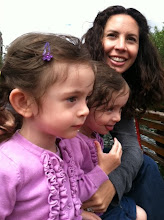Recently, I've noticed a new twist to their Mama & Honey dialogue. It's called "my mom and dad died, can I live with you?" Sometimes it's "my brother's dead, what should I do?"

Hmmmm.....
At the advice of a friend, I tried to insert myself into the play to get to the bottom of this, but it didn't work. They didn't want me to play. They're probably re-enacting one of the countless versions of Cinderella they've seen on TV or been read.
For about a year they've randomly asked their dad and me if daddy's going to die? At about 3.5-years they began trying to figure out how getting older and dying are related. My twins know that their paternal grandpa is buried in the cemetery two streets away, but thankfully haven't had a loved one pass away in their lifetime. Yet.
Death is a reality that all children will eventually be faced with.
My mom pointed out that historically children's songs and nursery rhymes prepared youngsters for death. With higher mortality rates in the old days, it was perfectly healthy to sing about death. Songs like Go Tell Aunt Rhody describing the death of a goose, and her children and husband mourning, clearly deals with the death of a mother. One might argue that in our efforts to protect our children from death by virtually eliminating it from their songs and literature, we might be making this inevitable part of life even more mysterious. Death is enough of a mystery without robbing children of a little foreshadowing and an opportunity to "play it out."
Go Tell Aunt Rhody
Go tell Aunt Rhody
Go tell Aunt Rhody
Go tell Aunt Rhody
The old gray goose is dead
Go tell Aunt Rhody
Go tell Aunt Rhody
The old gray goose is dead
verses:
The one she's been saving (x 3)
To make her feather bed
To make her feather bed
She died in the mill pond (x 3)
Standing on her head
Standing on her head
She left nine little goslings (x 3)
To scratch for their own bread
To scratch for their own bread
The goslings are crying (x 3)
Because their mother's dead
Because their mother's dead
The gander is weeping (x 3)
Because his wife is dead
Because his wife is dead









No comments:
Post a Comment